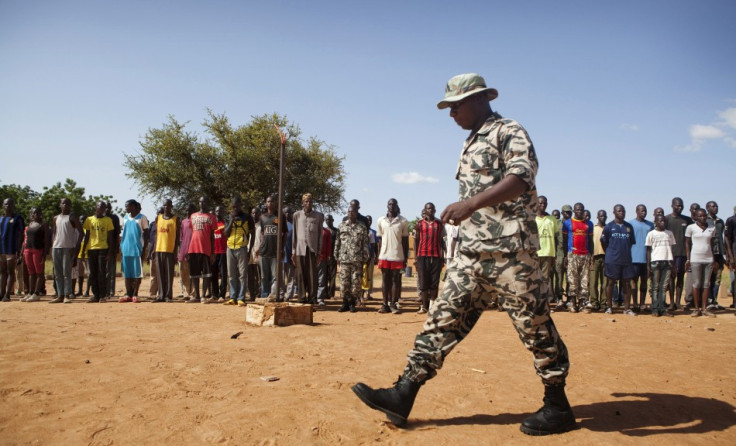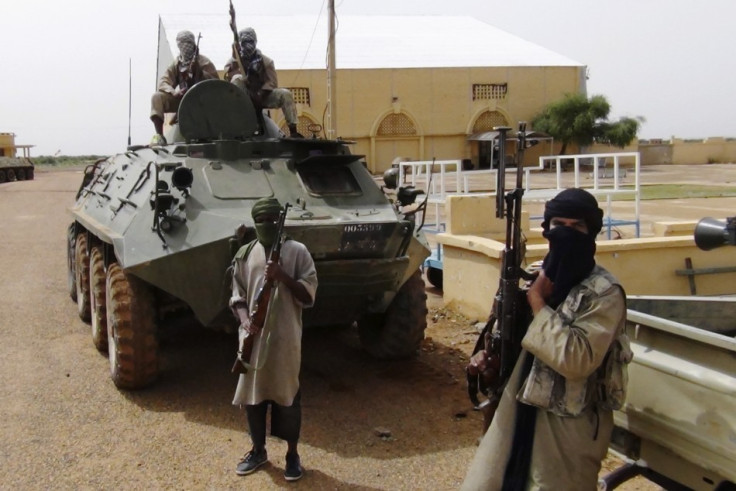UK 'Will not Send Troops to Mali to Face Islamist Rebels'
Claims that up to 400 troops would join European forces in Malian conflict 'premature and inexact'

The UK government has denied it is to send troops to Mali in a combat role to back the army in an offensive against al-Qaida-linked rebels who have taken control of Timbuktu and other parts of the country.
The Ministry of Defence told IBTimes UK that claims by The Times that between 200 and 400 British soldiers would be dispatched to Mali alongside French and German troops to train the rundown Malian army against Islamist fighters in the north of the country were premature and inexact.
"The UK is considering making a contribution to an EU Common Security and Defence Policy (CSDP) mission to train Malian troops but no decision has been reached and no decision is likely to be made ahead of the December Foreign Affairs Council meeting," a spokesperson said.
Germany, Italy, Spain, Poland and France have pledged to support the government in Bamako by contributing "to a possible training mission".
The 14 member countries of the Economic Community of West African States (Ecowas) said they were available, with UN approval, to send 3,300 troops to help the Malian government.
IBTimes UK has learned, however, that if Britain did join operations, it would send no more than a handful of operatives to Mali.
"The CSDP mission would be complementary to any Ecowas intervention but different in that the mission would not be in any form of combat role," a source said.
The Malian government lost control over the towns of Timbuktu, Gao, Kidal and Tessalit earlier this year following a joint offensive by Islamist militants and a secular Tuareg rebel group - the National Movement for the Liberation of Azawad (MNLA).
The insurgents took advantage of the chaos created by the military coup that overthrew former President Amadou Toumani Toure in March and by the outflow of weapons from Libya that followed the fall of Muammar Gaddafi.
According to the military junta that replaced Toure, the former president badly handled the Tuareg rebellion that started in January and did not fund the army adequately.
The situation has deteriorated with the new government army losing control of vast swathes of the country. Infighting among rebels has fragmented control of northern Mali into three factions.
Al-Qaida in the Islamic Maghreb (Aqim) is reportedly in control of Timbuktu, the Movement for Jihad a Unity in West Africa (Mujao) reigns over Gao, and the Tuaregs hold Kidal and Tessalit.
Despite divisions, strict Islamic sharia rule has been imposed in all areas controlled by the rebels.
Football, television and traditional music have been outlawed and corporal punishment, including stoning for adultery and amputation for theft, have been introduced.
The international community is worried that without prompt action, the area will become a terrorist stronghold.
"If left unaddressed, al-Qaida in the Islamic Maghreb will grow stronger," US African Command chief Gen Carter Ham said. "They will gain a capability through recruiting and the ability to train in a safe haven. They will develop an increasing capacity to conduct external attacks, first more broadly across the region. Without a great deal of imagination [I can] envision them extending their range of attacks into Europe and to the United States,"
The UN Security Council is to discuss a plan for the deployment of a regional contingent within the next few weeks.

© Copyright IBTimes 2025. All rights reserved.






















